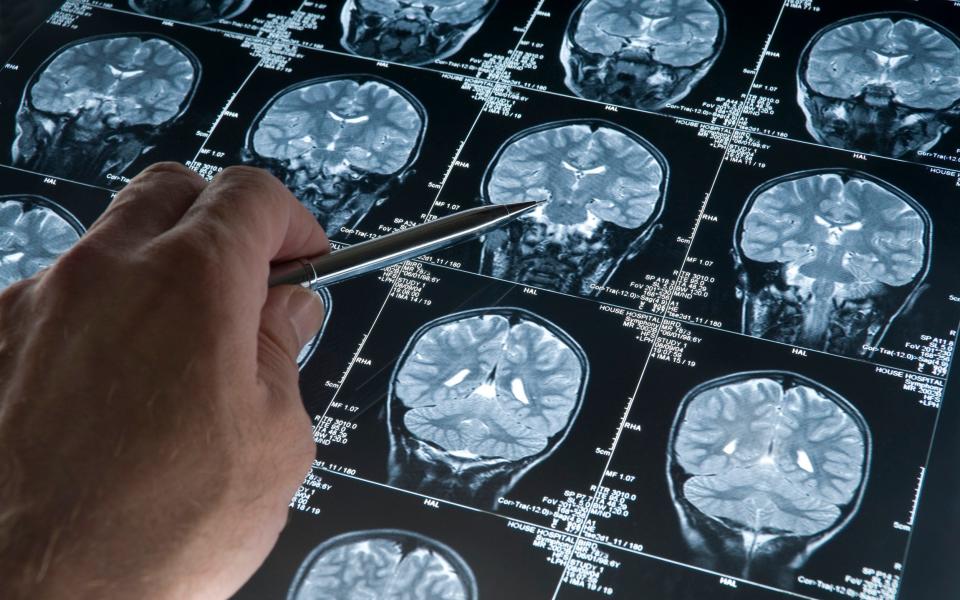Patients with treatable brain disease are being misdiagnosed with dementia, experts warn

Patients with a treatable brain condition are being misdiagnosed with dementia, experts have warned, as 80 per cent of doctors admitted they cannot spot the symptoms.
Autoimmune encephalitis occurs when the brain starts attacking itself for reasons not fully understood, and it affects at least 2,000 people a year.
It has very similar symptoms to dementia, with patients experiencing memory loss, cognitive problems, changes of personality and seizures.
But specialists have warned that many people with the condition may be ending up in care homes diagnosed with dementia, or even placed on psychiatric wards, even though there are treatments available for the condition. It is also sometimes mistaken for drug abuse.

Jacqui Ball, 64, of Cornwall, a former knitwear designer for Harrods, was diagnosed with Alzheimer’s disease after becoming uncharacteristically anxious and forgetful in 2018, at the age of 58.
Mrs Ball could not remember why she had driven to Oxford for her daughter’s graduation and suffered social withdrawal, loss of confidence and heart-thumping palpitations. She was eventually forced to give up driving and would stay in bed for weeks at a time.
Her husband, Howard, 64, a GP, said: “I thought it may be dementia. I thought she would get worse and die. It was hard on the family.”
In Sept 2018, Mrs Ball was formally diagnosed with Alzheimer’s, but after she suffered a major seizure the following month, doctors eventually ran multiple tests and by December, she was found to be suffering from autoimmune encephalitis.
After being put on steroids, and treated for the condition, Mrs Ball has been able to function again and has got her driving licence back, although her memory has never fully recovered.
“I focus on the day itself, I live in the moment,” she said.
‘Neurology is so complex’
Mr Ball added: “During my medical training, I never remember encephalitis specifically being talked about much. There is not enough awareness – most people wouldn’t have come across it. Neurology is so complex and this is so rare.”
New research from Encephalitis International released for World Encephalitis Day, on Feb 22, found that eight in 10 A&E doctors and nurses are unable to recognise the symptoms.
A study in the Netherlands found that up to half of patients who had autoimmune encephalitis had symptoms which could be mistaken for dementia, and dementia had been considered as a possible diagnosis.
The condition is also often sometimes confused with urinary tract infections (UTIs) in the elderly, meningitis, drug use, TIAs, epilepsy, migraine and brain tumours.
Prof Benedict Michael, director of the Infection Neuroscience Lab at the University of Liverpool, said: “In the UK, encephalitis is at least as common as motor neurone disease, bacterial meningitis, cerebral palsy and multiple sclerosis, but with a fraction of the awareness.
“Its symptoms are often confused with those of better-known conditions such as dementia, psychosis, meningitis, tumours, stroke, migraine and UTIs in the elderly, leading to delayed or misdiagnosis.
‘Personality change and a persistent headache’
“Knowing the symptoms of encephalitis – namely altered level of consciousness, personality/behavioural change, fever and a new persistent headache – will improve awareness, along with more medical training, particularly for those working in emergency settings.”
More than half of healthcare workers surveyed also said they would struggle to spot the symptoms of viral encephalitis, which occurs when a viral infection causes inflammation in the brain.
The condition is caused by viruses including herpes, rubella or measles, and doctors are concerned that recent measles outbreaks will fuel more cases of encephalitis.
In total, encephalitis affects about 6,000 people each year in Britain and causes up to 2,400 deaths.
Experts say this lack of awareness is costing lives, because recognising and treating the most common UK type (HSV encephalitis) within 24 hours will give a 90 per cent chance of survival, but outside this time frame it drops to 20 per cent.
“In the wake of these alarming survey findings, it is clear that much more must be done to bridge the gap in encephalitis awareness and expertise,” Dr Ava Easton, chief executive of Encephalitis International, said.
“Encephalitis International is determined to increase this awareness among medical professionals through the development of globally accessible training programmes, which will provide the tools for them to better recognise and treat encephalitis.”

 Yahoo News
Yahoo News 
